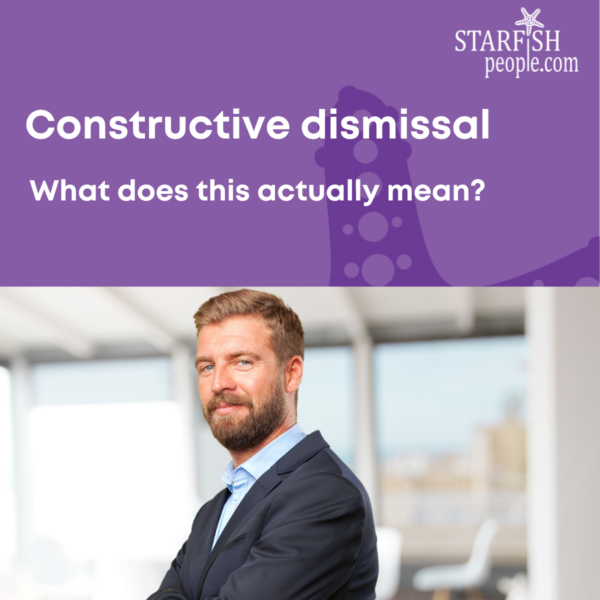You may have come across the term ‘constructive dismissal,’ but do you truly grasp its meaning?
Constructive dismissal refers to a situation where changes in an employee’s working conditions or unfair treatment compel them to resign. It’s crucial to distinguish this from unfair dismissal, which occurs when an employer terminates an employee.
In constructive dismissal, the employee feels compelled to leave due to circumstances beyond their control, often linked to their employer’s behavior. Generally, an employee can claim constructive dismissal only after two years of employment, though this rule doesn’t apply if discrimination is alleged.
If an employment tribunal determines constructive dismissal, you may be required to compensate the employee. The amount depends on factors such as the employee’s tenure, age, and weekly pay, with a basic award cap of £17,130 and a compensatory award cap of £93,878, potentially exceeding a total of £110,000 when considering legal fees and travel expenses.
Avoiding a constructive dismissal claim is crucial, not just due to expenses but also to preserve your business’s reputation and maintain a positive work environment.
Now, let’s delve into real-life examples of constructive dismissal:
1. Mr Parbhjot Singh v Metroline West Limited:
An employee claimed constructive dismissal after the employer failed to pay contractual sick pay during sick leave.
The tribunal found the employer’s failure to pay was a breach of contract, but the appeal tribunal disagreed, emphasizing the employee’s entitlement to pay.
2. Adams v Charles Zub Associates Ltd:
The employee resigned due to the company’s failure to pay his April salary promptly.
The tribunal, despite acknowledging a breach of contract, concluded it wasn’t a constructive dismissal as there was no intentional withholding of pay, highlighting the importance of clear communication.
3. Craig v Abellio:
An employee, facing errors in sick pay calculation, raised a grievance. The employer, despite agreeing to pay, missed the deadline, leading to the employee’s resignation and a constructive dismissal claim. The case showcased the challenge of determining whether an issue is a mistake or a genuine breach.
Constructive dismissal cases are intricate and often involve prolonged tribunal processes with potential appeals. If facing employee disputes or concerns, seek expert advice to save time, money, and stress. Feel free to contact us if you need assistance.
For HR advice or to discuss constructive dismissal further, book a FREE 30-minute consultation with Helen Price-Evans our HR Guru in the Starfish People Virtual Meeting Room by using the link or scanning the QR code below.
Helen will address your HR questions and concerns, and if you choose to work with us post-consultation, enjoy a discounted rate on our HR Packages!



